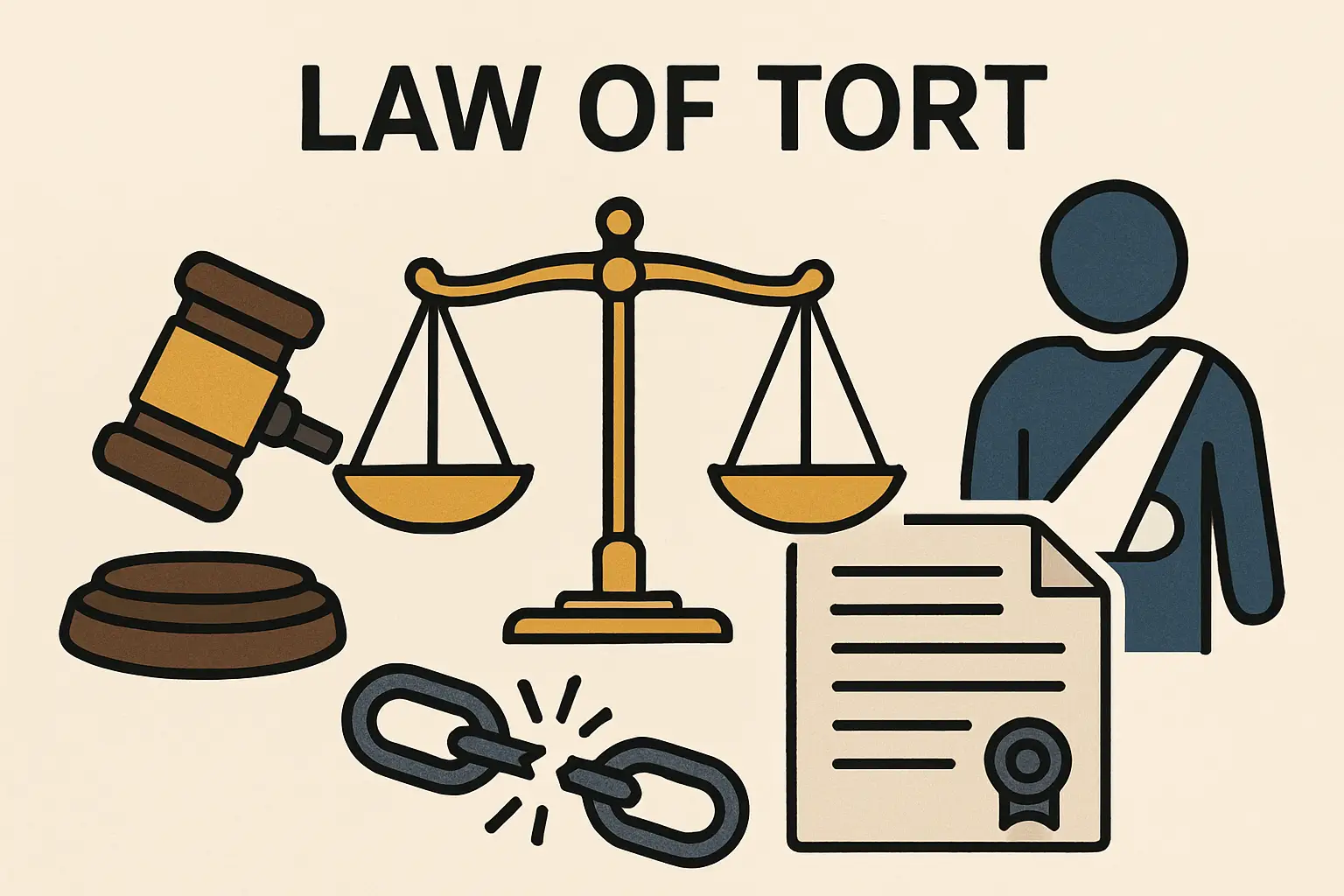The word “tort” has its roots in French, where it translates to the English term “wrong,” and is equivalent to the Roman law concept of “delict.” It entered English legal vocabulary through the influence of Norman jurists. Originating from the Latin “tortum,” meaning “twisted,” the term refers to actions or conduct that deviate from what is lawful or acceptable.
In modern legal understanding, a tort signifies a breach of duty that exists independently of any contract and gives rise to a civil claim—typically one for which the remedy is compensation. Although many scholars have attempted to craft the perfect definition, a universally accepted description remains elusive. However, a practical definition is that a tort is a civil wrong (not arising out of contract) for which the standard legal remedy is a claim for unliquidated damages, meaning the compensation owed is determined by the court rather than set in advance.
It is important to note that not every civil injury qualifies as a tort—actions like public nuisance, for example, do not give every individual a right to claim damages. The individual who commits such a civil wrong is referred to as a “tortfeasor” or “wrongdoer,” and the action in question is deemed “tortious.”
The primary purpose of tort law is to secure compensation for those who have been wronged or for their dependents. Nonetheless, in certain cases, the law also awards exemplary (or punitive) damages, highlighting its additional role as a deterrent against wrongful conduct.

